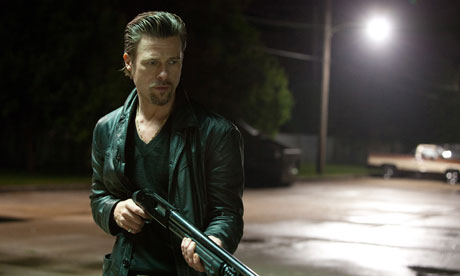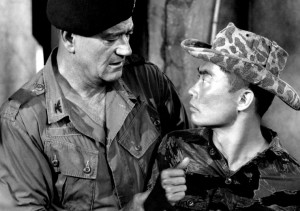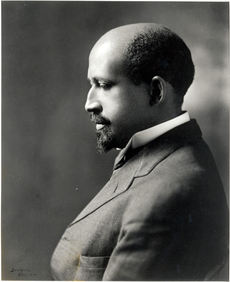
I have suggested before that as the hegemonic world power, the U.S. influences the way in which narrative is interpreted. The values it expresses are those of the ruling state. With the U.S. that means the military is the always the engine for high moral purpose.
Alongside this is the increasing scavanging of the lower classes. The corporate culture industry feeds off the lower classes. It does so in a variety of ways. There seems to be no end to the constant stream of “gritty” crime films, all of which seem to announce their own “edginess”. There are cartoon versions such as The Expendables and their are the prestige versions such as the recent Killing Them Softly. One might reasonably ask, has this not always been so? The answer is sort of.
What has changed however is that the deeper layers of meaning are now expressed in an ever more condensed shorthand. James Gandolfini, who became iconic in his portrayl of Tony Soprano, is featured in Killing Them Softly, thereby announcing the theme without the theme really having to be announced. He is a signifier for gangster. The fact that layered over the narrative is a naive economic allegory, only serves to suggest just how internalized are the assumptions at work in this stuff. The underclass itself had no hand in the making of this film. Nobody from the underclass worked on it. That in itself does not disqualify the film from relevence, but it points up the class relationships at the heart of the culture industry.
The military is the other backdrop to everything. All the way back to 1957, C. Wright Mills said that WW2 was the point at which the “merger of the corporate economy and the military bureaucracy came into its present day significance”. In 1961 Eisenhower made his now famous address on the military industrial complex. However, today, though this was true from the start, the military is not just Lockheed Martin or General Dynamics or Boeing…it is not just the death merchants who make bombs and guns. It is also the entertainment industry, the media, think tanks and policy research foundations, and the surveillance industry — it is almost everything, actually.

So, prestige products, those ostensibly having nothing to do with the military, still exert a power over how narrative is read. This is often obvious, but more often is quite subtle, and its very pervasiveness is what allows it to permeate everything of a performative nature. The easiest to identify is to examine how masculinity is defined and expressed. Characters of sexual appeal, men anyway, must colonize and subjugate all around them. Now, in the case of the new liberal scavanging of the underclass, this takes the form of simple violence. It is couched in reactionary cliches about the violence that is at the heart of human nature (“its a jungle out there”). In the Israeli attack on Gaza, I cant count the times I heard white liberals apologize for this barbarity by saying, essentially, ‘its a jungle out there’ –it’s a tough world, etc. Talking tough is the hallmark of the new reactive white masculine crisis. Now, there is something else at work in crime stories that makes a simple analysis dangerously reductive. All narrative contains an identification with transgression. A Lacanian re-telling of our own psychic formation, of our own Oedipul drama. As Lacan said, we know our mothers can only love us as criminals. However, there are qualitative distinctions to be made here. The author of 99% of Hollywood film is not the director, nor the writer, nor the actor, but the corporation.

The culture industry erases individual expression. And perhaps it’s useful to look again at this scavanger relationship to the working class from Hollywood. In the old WW2 propaganda films, one would find, almost always, one guy in the platoon from Brooklyn, another from Texas, or at least the South, and one who was an intellectual…meaning he wore glasses. These were, in comparison to today, very simple codes. Today there is a shift toward the idealization of professionalism. The virtue of not asking questions, or muddying the moral waters by questioning authority, but only to do one’s duty. There is a lot of sentimental hand wringing brought out to show the “cost” of “having” to punish people — the alkie cop, the world weary soldier or cop or CIA agent. The imperitive is not ever questioned, however. I have noted a marked increase in respect for authority coupling to sex appeal. The clean cut young soldier…who may be battle hardened, but always answers yes sir and no sir.
One of the few films to really explore the pathology of this was the much neglected Harsh Times
David Ayer’s film examined the soul sickness of this obedience. The worship of sadism, and racism, and domination that is the heart of institutional violence. Usually, however, the clean cut young soldier or cop is there as sex symbol. This is a shift away from the counter culture heroes of the 60s, 70s, and even 80s. The post Viet Nam noirs….many very good, actually (Cutter’s Way, Who’ll Stop the Rain) may have been partly masculinist self examination, but they retained a tragic impulse at the center of the loss of potency. That has shifted as the embedding of the US Military in the entertainment industry has increased. Lets remember that the Pentagon (and Department of Defense) has given millions of dollars to Newsday, ABC Radio Networks, the National Newspaper Publishers Association, Murdoch’s Newscorp, as well as Reuters, and the Washington Post, New York Times, L.A. Times and the Tribune Company. What is it giving this money for? Well, what do you think?
When Don Rumsfeld attacked the U.S. Media, he was performing a bait and switch — for one of the constant memes out there is that the media is “liberal”. The fact is that the U.S. corporate media is fully in sync with the Pentagon and the U.S. military on everything. This includes film and TV.
So, back to this scavanging of the underclass. The trend toward “authenticity”, toward edginess, is simply branding. The films are corporate and the performances are corporate. Brad Pitt is not drawing upon any personal experience, he is aping behavioral ticks gleaned from previous Hollywood film, and from “research”, probably, done through “meeting” with real life criminals.

The sense of slumming is something I’ve written about before. The Hollywood actor tourism with the under class. The resultant performances are not just imitative, in the crudest sense, but imitations of class bias, of the paternalistic fetishizing of the proletariat. It extends, of course, to the camera. The entire project is mediated by this core class tourism. Everything is looked at as if its in a diorama at the Museum of Natural History. The exhibits of the underclass. Running alongside this is the frisson of percieved danger — itself a fetishized concept, a prejudice about the lower classes. All the old colonial era bigorty is re-branded. If I’m correct about white masculinity feeling ever more threatened, ever more powerless, then it’s easy to see the results in today’s culture industry. Again, mediated by the U.S. Department of Defense. In fact the DoD spends a good deal of money making its image sexy and appealing.

W.E.B. DuBois
The U.S. DoD owns 711,000 acres outside the United States. It has over 700 bases outside the United States, and in thirty eight countries. Over 230,000 personnel are stationed outside the United States. As Nick Turse says, the U.S. military is the world’s global landlord. This relationship to the rest of humanity is reflected in what is produced by the mediated culture industry. The imperialist project becomes a micro drama even in its scavanger narratives. The default setting is domination….one way or another.

Camp Victory, Iraq
One of more disturbing aspects of these relationships, re-manufactured daily, is that the public….and this is of more relevence when thinking of ‘prestige’ products…now seems to have lost the ability to distinguish or locate the dynamics at work. Its not simple…for often things overlap. A film such as Harsh Times, for all its virtues in capturing something truthful about the sociopathic personality in uniform, also betrays itself in a number of other ways. It cant help but do so. However, the ‘reading’ of these products, of the narratives, has been so truncated that real aesthetic resistance must be re-thought.
Speilberg’s latest bit of revisionist storytelling, Lincoln deserves a mention here. There is a useful review here:
http://jacobinmag.com/2012/11/lincoln-against-the-radicals-2/
My point is really that aesthetic resistance, radical aesthetic critique, must be able not just to analyse the (rather obvious) reactionary political points in a film like Lincoln, but to see them reflected in the performative poaching of the “lower classes” from Brad Pitt, or in the worship of the military and police in endless TV and film.
The complexities of acting, and its relationship to the master narrative, to class and race and gender is worth a whole seperate discussion. It is linked to aesthetic theory, to ideology, and to, on an even deeper level, the historical role for art.

Clair Danes just won an emmy for a cartoon performance so exaggerated and bizarre that it belongs in a time capsule to be studied by future generations. It is no less camp than poor Lindsay Lohan’s bio-pic turn as Liz Taylor. So what is at work that allows one to be rewarded, to be applauded seriously, and one to be this season’s camp laugh fest? Well, admittedly the bio pic in question was never really intended as more than an ironic giggle, while the other is framed as “drama” — a prestige TV product where Danes is surrounded by ‘prestige’ actors. Yet that is only part of the explanation. There is more at work, and it would require a close reading of these performances to unearth the particulars. My sense, though, is that Danes bi polar CIA operative is a specific white male fantasy. The talented woman, still in need of male rescue.
The constant reinforcement of a white supremicist narrative permeates corporate entertainment. Almost everything is couched in these terms. As the sense of impotence intensifies, the narratives double down on their insistence. It seems important that any analysis of film and TV, and really of any narrative, recognize this — and start to identify the ways in which it occurs in acting, as well as in image. Cultural tourism appears in Ben Affleck visiting war criminals in Africa, accompanied by spook to the stars John Pendergrast … or any UNESCO photo op….
(see Keith Harmon Snow….http://www.consciousbeingalliance.com/2012/08/us-agents-of-covert-war-in-africa/)
or in any liberal paternalistic guide to the rescue of the world’s poor. Especially in that need to bomb them into gratitude. It appears in crap genre TV like Hawaii Five O or in prestige exercises in authenticity like Killing Them Softly. The prestige work, in this latter case, is remarkably well made … and hence even more insidious.
The Pentagon’s holdings are larger than Hungary or North Korea, and it gives out contracts greater than the GNP of Portugal — its fingerprints are on all of this, even down to the most purile reality show. So, its Joey Greco to Brad Pitt, Claire Danes to Ben Affleck — it is MSNBC and it is FOX News. The structural setting is white supremicism, and pro Capitalism. Any chance for artwork to step outside this requires first that it be recognized.


I really love this piece, and hope that it reaches many of the artists I know who have not had someone there to offer this guidance regarding their hopes to be funded, or approved of etc…
I would also like to know how you would articulate the difference between Brad Pitt or Mickey Rourke or whomever playing a gangster and say, John Garfield. What makes a film like A Prophet, or Bullhead different from other “gritty crime” films?
I have not seen “Harsh Times,” but whatever you saw in David Ayers has evaporated with his latest “End of Watch” – a film so blatantly resentful of cops being videotaped that it angrily snatches the camera out of the by-stander’s hands to glorify itself in self-deluded vanity. The irony is astounding, it’s only OK to film police doing bad things when the camera is in the hand of the cops – especially when the cop is played by that piece of cardboard Jake Gyllenhaal.
A film that comes to mind when thinking about “Lincoln” is “Hitchcock;” one seeks to revise history, the other to purify cinema. “Hitchcock” is pure sterilization of the darker demons Hitchcock harbored that made his films so intriguing, disguised as a prestige project (Anthony Hopkins playing Hitch and Helen Mirren as his wife Alma).
@joe…….
yeah, the clips i saw of End of Watch looked just awful. But you never know how these things evolve. Thats the problem you see, the studio is the auteur. I think people too religiously adhere to the idea of the director as auteur. I do. Everyone does since Cashier. The truth is, often, if not very often, its not the case. Harsh Times is a fascinating film, but it barely got a release. So its also possible Ayers learned what was required if he wanted to sit at the big table.
@lex.
I think for one thing, those post WW2 noirs were made by german jew emigres…..guys who with a real experience of state power, of fascism. They expressed a pure sort of paranoia. But coupled to that was John Garfield was a performing a proletarian experience….he was born on the lower east side….(jacob garfinkle),,,,, so he wasnt borrowing or scavanging. And this is what you see in Force of Evil………..and, he worked with the group theatre in NY. Both these things contribute to the authenticity of that performance. Brad Pitt vs john garfield. I suspect today the work that guys like Garfield (who wouldnt name names under HUAC) would be very out of place. But then a film director such as abe polansky would be out of place (polansky was black balled…didnt work for forty years)……….today were have a sort of film school kid culture. Those who cannot see the difference. I mean its depressing………..but if you look at the Cohn Bros, or Killing Them Softly (even the title sucks) you see a sort of technical expertise wed to zero political content. NO real experience is suggested. Its a sort of puppet show. What garfield brought was in his face as well. What is in Pitt’s face? I mean, in the jesse james film, the same thing. Young adolescents playing dress up …….putting on their father’s boots. Not wanting to go too freudian, but there is a weird Oedipul drama going on here….on a couple levels.
The young film school kids must eat their fathers…………..abe polansky……….or billy wilder or val lewton or Hawks. And so they re-perform , reenact, the murder. On one level, thats whats taking place. But on another its just the steady infantalizing of the culture. Adults are banished from view. In fact adulthood is banished. The fucking presidency is contested by less than adult males. Frat boys. Its , as they call it in england, a lad culture. Marketing has contributed to all this. Selling to men in their thirties as if they were still 18. And men in their thirties act as if they were still 18. The wall street criminals of the 2008 meltdown, guys hauling in millions, behaved as if 18. Buyed hookers…..expensive ones…bought new jets, expensive clothes…..acted like eighteen year old assholes. They just had the means to indulge that fantasy. The working class doesnt. But the real working class is almost invisible in today’s culture.
http://www.counterpunch.org/2012/11/26/mico-militarism/
I love the take on wearing daddy’s boots. For sure. It’s silly to the point of just throwing one’s hands in the air to watch these adolescent faces play these grizzled old tough guys. Even actors who apply themselves, like Di’Craprio, still end up with these embarrassing performances.
I think it’s also very much, a manifestation of class insecurity/class fear. John Garfield might make these directors uncomfortable, because yes he lived it, was in street gangs, and boxed, and grew up in all of the poor sections of NYC, but he also studied and was a real actor. Which would make a privileged film school kid very uneasy. It’s ok if some retired UFC fighter joins the cast. He’s there to be a monkey, and everyone gets a kick out of it.
” In the old WW2 propaganda films, one would find, almost always, one guy in the platoon from Brooklyn, another from Texas, or at least the South, and one who was an intellectual…meaning he wore glasses. These were, in comparison to today, very simple codes. ”
More and more often I return to Sahara, a film from a John Howard Lawson screenplay, to mark the distance traveled. And that was war propaganda – it fulfilled all the requirements of the formula and yet transcended them. A lesson in the value and exploitation as well as anti-white supremacist and anti-fascist.
But very striking is it’s not gritty at all. It’s not misanthropic. It’s not designed to make you loathe humankind. This now qualifies as “‘sentimental”. It’s a wonderful film.
Now we are being inundated with films that are just basically designed to inculcate an attitude in the audience that would make us amenable to genocides, mass torments, mass suffering. This is the aim across the spectrum, whether the product is this artificial “‘grittiness” and its pseud-verisimilitude or whether it is this strange CGI fascist long-view eternity stuff, the Siegmund Sieglinde Divine Couple type thing. This latter is to soothe those of us who can’t just ignore what we know – it tells us yes it’s terrible, but it’s ephemeral, from the perspective of the Universe; think of humanity as ants, and if out of this carpet of insects emerges two Eternal Lovers, Celebrities to be Meaningful meaninglessly, well then all the carnage was worth it.
A lesson in the theory of value that should say
Our Divine Clichés Give Meaning To The Universe, they are The Word, God’s very breath.
And now having sung our opening hymn, we are seated again, seatbelts fastened in our pews, for our sermon ride, today we shall be whisked in our toy hot air baloons through the Gospel of Warners, the parable of The Hooker With The Heart of Gold and The Reluctant Hero…
“you see a sort of technical expertise wed to zero political content.”
even the ostentatious rejection of political content, the swaggering display of its absence (in Burn After Reading this becomes fully explicit).
One thing that occured to me recently is that there are two versions of violence seen in studio film and TV. One is the post modern gangster version ( Sopranos, Boardwalk Empire, Brotherhood, et al) or the inner city post modern blacksploitation sub genre……(which includes tarrentino in its way, but also half a dozen sam jackson films, and 50 cents film, etc)…………..and the other is the CSI crime fighters ….cop shows in general (everything from Criminal Minds to SCI Duluth, to whatever…..there are dozens of them). In one version , the gangster version, violence is rudimentary, its a daily occurance, it happens all the time and few people react much. People shoot their enemies, their friends, strangers, whatever. The thug with no impulse control. It has reached an absurdist level with boardwalk empire, in fact, and its not an accident that Scorcese is executive producer. People are shot, and NOTHING happens…there are rarely consequences. The police never investigate…as if ten bodies a day in any city would not create mass police activity. In the other CSI version, any murder is investigated with more technology than NASA used to send the Mars probe into action. EVERY MURDER is solved. Somehow these are polor opposites, and yet oddly the same thing. The audiences knows the outcome. In one, the outcome is nothing. In the other the murder is ALWAYS solved. In one the implication is that the underclass simply murders out of primitive impulse. In the other, the criminal, the threat to society, is caught and sent to prison. The fabric of the society is restitched……and then related to this, to both in a sense, is the CIA story, the post modern espionage drama. Its interesting to compare a writer like Eric Ambler, or even Le Carre, with stuff like Homeland or Affleck’s latest feature…..which is related. Here the military enters. In one, the villains are arabs. Muslims, Hamas. Al Qaeda. In the other its just the underclass in general. But in an Ambler or LeCarre the central theme is moral ambiguity. There is a cynical sense of futility in LeCarre. That has changed –moral ambiguity is replaced with individual moral doubt. My friend Chris pointed out that in Homeland, all the villains and all the heroes, have personal reasons of revenge for what they do. No political motives, really. This is true of almost all political narratives from hollywood……..the personal becomes the engine for the story. If anyone has political motives, he or she is portrayed as a fanatic.
In the gangster shows, this reflex sadism, this endless often unmotivated violence, is treated like a sexual urge. An uncontrolled sexual urge. Much as the underclass has always been seen as having uncontrolled sexuality. They kill, then clean up, and have dinner.
This has echoes of the last discussion on the unconsciousness. The narrative is almost too specific now, too personalized, in that every character has a personal reason behind their actions. While this may, in some minds, humanize them it limits their impact on humanity. This is easily seen in contemporary plays as well. The lead character has a very specific tick, a neurosis, a “gift” and the entire play hinges on the manifestations of this one particular thing. It’s personality acting, totally lacking in any broader themes. This is why the plays Sophocles, Shakespeare, Beckett and Lorca are vastly superior, but not as commercially viable- they deal in archetypes in a world that is losing (has lost) its ability to think in metaphor.
to clarify what i said above. The espionage or political thriller is now driven by personal vendetta, or neurosis, or frustration. The characters have very limited, if any, ideological beliefs, beyond base patriotism. But no ideology behind their actions. So the morally ambiguius universe becomes a narrow personal, emotional trauma. The universe in these films is clear, binary, and absolute. The characters either die or return to that binary simplistic world. In ambler for example or even graham greene, the world is uncertain ….morality fluid and blurred.The individual must examine this blurring and make choices. Action, based on belief, analysis, and material world conditions. They link up. And each choice results in more confusion ..patricia highsmith is another example.
What i see in the liberal hollywood film is BRANDED cyncicism, its a pose. A trope, a cliche. Its connected to NOTHING.
and yeah vocalus…………that struke me a long time ago in institutional theatre. The’hook’. Characters must confront their hook, their issue, but the wider world is really only there as backdrop, sort of implied, and this is true in actors. I remember when don johnson had to play an english professor once. What did he do? he wore glasses. Funnier still was richard gere as a shrink……….he just squinted more.
The personal vendetta vs. broader perspective is part of the hero worship of cops and soldiers. They are morally superior because they think less. All they feel is loyalty and rage. It’s similar to antiquity writings about the love of slaves and peasants for their simpleness, which made them closer to god.
@lex
right, exactly. Thats the ideological backdrop to these tropes. The adoration of the military and the police cant be over emphasized — it permeates everything. The drum beat of authority is constant, its in almost every narrative you can find produced by corporate media. And the symbols are everywhere. Flags, guns, uniforms…..and it goes unexamined.
Recently I was searching the internet and discovered your blog. I must say, this blog is awesome. I will tell my friends straight away
Just a fast hello and also to thank you for discussing your ideas on this page. I wound up in your weblog right after researching physical fitness associated things on Yahoo guess I lost track of what I had been performing! Anyway I’ll be back once again within the future to check out your blogposts down the road. Thanks!
cicarelli filho video germano mosconi video metanoia video dey know video.
I agree with the article you wrote. I do not expect you to write articles about Wireless Phone Accessories. Because many people are looking for him.
Hi. I wanted to thank you for the fantastic info you have posted on your site. I will definitelycome back to check it out again and have subscribedto your RSS feed. Have a great day.
well is say just Whenever you arrived at our site, the first you should know is you can buy the highest quality and most expensive ipad case, additionally your favorite apple ipad cases as well as ipad add-ons. You will find hundreds types of ipad situation
Hello friend. I actually love that writing as well as your current web site all in all! Your posting is actually extremely clearly composed and effortlessly understandable. Your WP style is impressive as well! Would definitely be good to know where I are able download that. Be sure to keep up the excellent work. All of us require far more such web masters like you on the web and also much less spammers. Wonderful man!
Then again, the opposite could be true. – Life doesnt imitate art, it imitates bad television. – Woody Allen Born 1935
Gong…….
hardest thing in writing is staring at the empty page…or screen……….its just a war of attrition somehow.
Hello, this weekend is fastidious designed for me, since this occasion i am reading this fantastic educational paragraph here
at my residence.
I got this web site from my friend who informed me about this website and now this time
I am visiting this web page and reading very informative articles at this time.